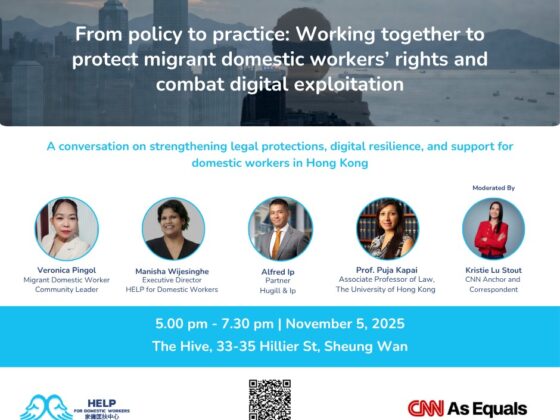An impact of a multi-cultural society is that children have parents of different nationalities. When those relationships break down, there is an increased risk that one parent may takes the child, without the permission of the other parent, across borders to return to their home country.
The Hague Convention on the Civil Aspects of International Child Abduction (“the Convention”) provides the protocol amongst contracting states for the prompt return of children wrongly abducted from the place of their habitual residence. Hong Kong has been a signatory to the Convention since 1997. This was agreed before the handover and the “one country, two systems” principle allows Hong Kong to retain its autonomy while remaining part of China, which is a non-Convention country.
The Hong Kong Court is not bound to the return of the children if the parent who opposes their return establishes that the other parent had ‘consented to or subsequently acquiesced in the removal or retention (Article 13(a)) or ‘there is a grave risk that the children’s return will expose them to physical or psychological harm or otherwise place the children in an intolerable situation (Article 13(b)).
Process
The Child Abduction and Custody Ordinance (Cap. 512) was enacted to implement the Convention. Order 121 of the Rules of the High Court, Chapter 4A set out the procedural rules.
The Secretary for Justice is designated as the Central Authority of Hong Kong to discharge the relevant functions under the Convention. In practice what will often happen is that proceedings in the High Court are started by the Central Authority as the original plaintiff and then it withdraws from the process but stays involved as an independent observer, to lend assistance to the Court.
Convention cases in Hong Kong are dealt with by a small pool of experienced High Court Judges.
Immediate steps
As soon as it is known that a child has been abducted to Hong Kong first considerations will be to stop the child leaving. This is crucially important because of Hong Kong’s proximity to non-Convention countries such as Mainland China and Taiwan.
An application will be made ex-parte for a stop order which will be served on the Immigration Department. The child will be added to the Stop List of the Immigration Department and prevented from leaving Hong Kong. This will prevent the abducting parent from fleeing Hong Kong with the child once they receive the Court documents and thus defeating the intention of the Convention.
If the child cannot be located, the Court has powers to compel the production of information on the whereabouts of the child. The Court may order a person to disclose the whereabouts of the child. If the child/abducting parent is a Hong Kong resident and particulars of the birth certificate or identity card are known, the last known address may be obtained from the Registration of Persons Office of the Immigration Department.
Other steps that may be taken include obtaining travel movement records from the Immigration Department. The Court can also direct the Immigration department not to release travel documents to a parent.
Sometimes, a parent who has abducted a child to Hong Kong may then start divorce proceedings to try to circumvent the Convention. The Court has the power to stay those proceedings.
Interim measures
- Access
The Court has wide power to give any interim direction as it thinks fit for securing the welfare of the child. This usually includes making interim orders for how the child will see the parents, including orders for defined access and supervised access.
In the recent case of J v Q and Minor [2025] HKCFI 632 the child had been brought to Hong Kong from Shanghai by the mother, had extremely high anxiety levels, and was very resistant to seeing the father. The Judge met the child before deciding on interim arrangements because there was not time for a social welfare report.
- Information
In the case of M v E [2015] there was an issue of the authenticity of the mother’s signature on applications for travel documents made to the Immigration Department. The mother said her signature had been forged and the Judge directed the Central Authority to make enquiries with the Immigration Department in respect of documents.
Another common interim measure is for the travel documents to be held by the Court.
Investigations before a decision
In cases where the Article 13 objection is being relied on the Court will consider the views of the child if he/ she is mature enough to express them. Usually this is done through the Social Welfare Department (SWD) but it can also be done by a face-to- face meeting with the Judge.
Privately funded experts may also be appointed to act as a Single Joint Expert.
The Court may also appoint the Official Solicitor to act as guardian ad litem to the child.
Protection measures and safeguards to return children to their place of habitual residence
The practice of requiring undertakings is designed to smooth the return of, and to protect, the child for the limited period before the foreign court takes over. It is common for the parent seeking the return of the child to offer undertakings which could include the following matters:
- Sit separately on the flight
- Providing separate accommodation for the abductor
- To vacate accommodation until further order
- Non-molestation
- Cooperate in respect of visa issues
- Undergo psychological testing
The Court may direct the parent to provide an affirmation from another family member confirming that they will assist in caring for the children and that they are able to live with them. For example, in the case of FR v MF [2021] HKCFI 1750 the Judge asked the father to provide an affidavit from his mother (paternal grandmother) confirming that she will assist in caring for the children and prescribed that the affidavit must state how long she will allow the father and children to remain living in her property.
In some Convention countries, abduction is a criminal offence, and a return order could result in the abducting parent being convicted. In the case of Secretary for Justice v C and S [2024] HKCFI 2821 the father undertook not to make any application to the police or prosecution authority in Germany and to withdraw complaints made to the police.
Consideration will need to be given as to whether voluntary undertakings are enforceable in the State of habitual residence of the child, especially in cases where the grave risk involves domestic violence.
Conclusion
No matter what perceptions there are about the legal system in Hong Kong, there is no doubt that it is working very well in terms of child abduction cases. Unless one of the Convention exceptions apply, a child abducted to Hong Kong will be returned to its place of habitual residence, and that this will happen quickly.
Recent cases
Secretary for Justice v C and S [2024] HKCFI 2821
Judge: The Honourable Herbert Au-Yeung
Date of originating summons: 9 September 2024
Date of return to Germany: 23 October 2024
The mother relied on the child’s objection exception and there was a risk of an intolerable situation if the child, aged 9, was taken back to Germany. The Mother’s case was presented to the Court late in the process and the Judge decided that given there was no time for a Social Welfare Report, he would meet the child. The Judge formed the view that the child’s objection as expressed in the meeting with the Judge was the product of the influence of the mother and he therefore placed little weight on the objection. The Judge rejected the mother’s case and made a swift return order. He stated:
“81. Having considered all the above and balancing all the circumstances, I have come to the decision that notwithstanding the Child’s views, it is in his best interest for him to return to Germany forthwith. In my view, this Court should, in the present case, give due weight to the general policy considerations: secure the swift return of the Child, and respect the comity of the contracting states as well as the German judicial process. This Court should also send out a clear message to potential abductors that there are no safe havens among the contracting states”.
Moreover, the Judge also made a costs order against the mother because she had breached orders made by the German Court. He stated that:- “ An adverse order on costs should be made to reflect the Court’s strong disapproval of such conduct.”
Q v J and K [2025] HKCFI 632
Judge: The Honourable Winnie Tsui
Date of originating summons: 18 December 2024
Date of return to Shanghai: On or before 25 February 2025 (around 10 weeks)
The case involved two sets of proceedings about a 12-year old boy who was brought to Hong Kong from Shanghai by his mother. As Mainland China is a non-Convention country, the father started wardship proceedings. The mother alleged that before coming to Hong Kong the child’s place of habitual residence was Japan and that the father had wrongfully retained the child in Shanghai. The question for the Court was whether the child should be returned to Shanghai or Japan. It was common ground that the child had no connection to Hong Kong save for holding a Hong Kong passport.
Interim orders included a stop order to keep the child in Hong Kong and the Official Solicitor was appointed to act as guardian ad litem to the child. The Judge also made orders for the father to see the child, but this did not happen due to the child’ resistance. As there was no time to obtain a social investigation report on interim measures, the Judge met the child to ascertain his wishes. The Judge ordered the mother to return the child to the father forthwith. She further ordered that the interim care and control of the child be granted to the father. However, this order was then stayed due to the child’s emotional condition.
Orders were made for the appointment of a single joint expert clinical psychologist and a treating psychologist for the child.
The Judge considered a great deal of evidence and made an order for the child to return to Shanghai with a raft of protective measures.
EY v SE [2025] HKCFI 1475
Judge: The Honourable Judge Queeny Au-Yeung
Date of originating summons: 19 February 2025
Date of return: On or before 21 April 2025 (around 8 weeks)
The children were brought by their mother from Phuket to Hong Kong without the consent of the father. The mother acknowledged that the children’s place of habitual residence was Phuket and that the removal was without the father’s consent and wrongful.
The mother relied on the Article13(b) defence under the Convention, i.e. that there was a grave risk that their return would expose the children to physical and psychological harm or place them in an intolerable situation due to violence or oppressive behaviour of father. The children also objected to the return to Thailand. The mother’s case was that any safe harbour measures or undertakings to be given may not be honoured by father in a foreign jurisdiction and mother would be left in a helpless state.
The Court made interim orders for Dr Craigen to be appointed at the Single Joint Expert, for the father’s access to be defined, including staying access and both parties were prohibited from removing the children from Hong Kong.
The Court rejected the mother’s case and ordered the return of the children to Thailand. Protective measures included mutual non-molestation undertakings, mirror orders and undertakings to live separately. The Court also made an order for interim access until the Thai Court dealt with the matter.
The article was originally published on Hong Kong Lawyer




